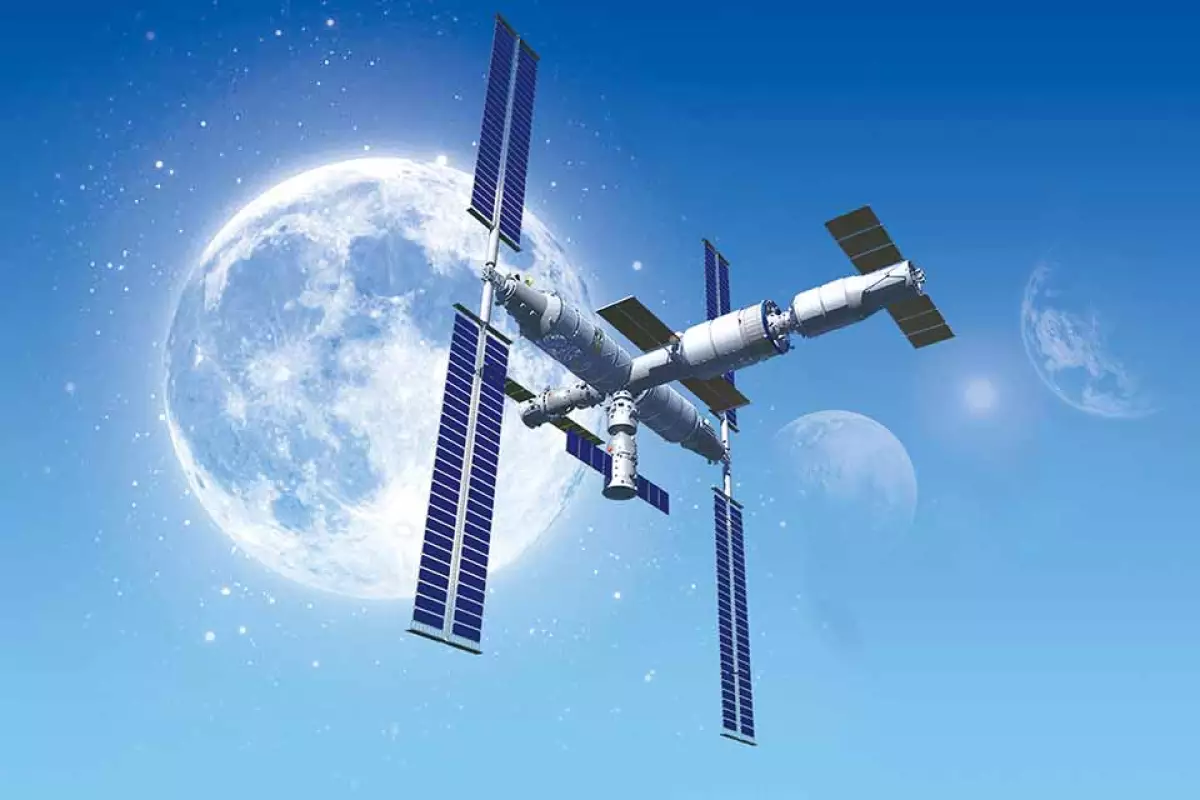China's ambitious space program has taken another step forward, with crew aboard the Tiangong space station conducting the mission's first spacewalk and the first for the nation in 13 years. The pair of Chinese astronauts, or taikonauts, successfully ticked off some important tasks across the seven-hour extravehicular activity, moving some key pieces into place as construction continues on China's new orbiting laboratory.
The China National Space Administration launched the core capsule of its Tiangong space station back in in April, sending up a bus-sized module fitted out with life support systems and living quarters for the crew. It then launched a cargo spacecraft packed with supplies in May, before following that with the launch of the first crew in June.
After carrying out some initial testing and validation of the onboard systems, the crew has now got to work installing some new componentry. On Sunday, Beijing time, the Tianhe module's hatch was opened for the first time and taikonauts Liu Boming and Tang Hongbo climbed out into space.
The pair then set about installing new foot restraints and a working platform on the mechanical arm on the station's outer, and also repositioned a panoramic camera. The entire exercise took around seven hours, with the pair also using the mechanical arm to install additional gear before returning to the inside of the Tianhe module in time for Sunday dinner.
This marks the first spacewalk for China since Zhai Zhigang left the Shenzhou 7 spacecraft to walk in space during a three-day mission to Earth orbit in 2008, making it just the second ever for the nation and its first tandem spacewalk. You can see the taikonauts leave the Tianhe module in the short clip below, tweeted by Chinese government official Deng Xijun.
The 2 #Chinese #Shenzhou12 #taikonauts Liu Boming &Tang Hongbo went outside core module for the 1st extravehicular mission which lasted for 7 hours this morning, marking a full success of the 1st #spacewalk for the astronauts at the #spacestation. pic.twitter.com/SVIkvbxqp9
— Ambassador Deng Xijun (@China2ASEAN) July 4, 2021
Boming, Hongbo and fellow crew member Nie Haisheng, who stayed inside the Tianhe module during the spacewalk, will remain aboard the Tiangong for three months. They are expected to take part in another spacewalk before their time is up, and carry out testing of waste and recycling systems and conduct scientific experiments.
Sometime next year, Tianhe will be joined by two smaller modules that will be used to conduct scientific investigations, with the whole laboratory expected to be complete and operational by the end of 2022. The project is just one of a number of ambitious ventures being undertaken by the China National Space Administration, which recently brought lunar rocks back to Earth for study, landed the first ever spacecraft on the far side of the Moon, and landed its first probe on the surface of Mars.
Source: Xinhua




